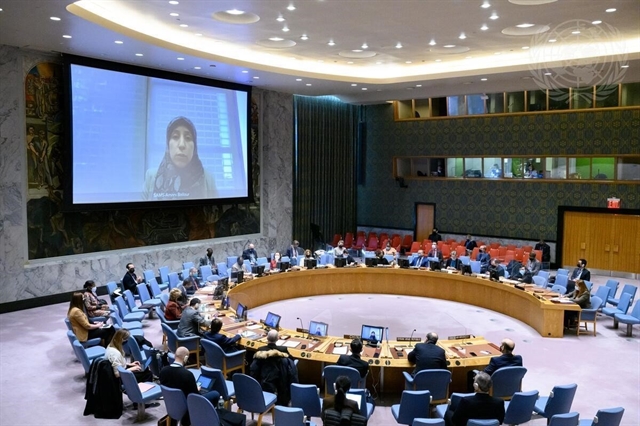
HÀ NỘI — Ambassador Đặng Đình Quý, permanent representative of Việt Nam to the UN, has emphasised the need to find a long-term political solution for Syria despite the longest period of calm since the beginning of the conflict in 2011.
He made the statement at a United Nations Security Council’s meeting on Syria on Monday with the attendance of Geir O. Pedersen, special envoy of the secretary‑general for Syria, and Martin Griffiths, under-secretary-general for Humanitarian Affairs and Emergency Relief coordinator.
The Vietnamese diplomat called on Syrian parties to engage in constructive negotiations and underlined the importance of international support for the process. He called for increased humanitarian assistance and highlighted the need to develop comprehensive post-conflict recovery support to ensure the self-reliance of the Syrian people.
At the meeting, Pedersen said that efforts were being made to promote the participation of international partners and regional countries in seeking appropriate solutions to the deadlock situation in the political process in Syria on the basis of the UNSC’s Resolution 2254.
Griffiths said that the humanitarian situation in Syria was deteriorating due to the impact of instability, economic crisis and the complicated developments of the COVID-19 pandemic. He also briefed on the implementation of Resolution 2585 regarding the deployment of cross-line deliveries of aid to the Northwest region and the support for post-conflict recovery in Syria.
The same day, Ambassador Quý welcomed the announcement on the withdrawal from the Amhara and Afar areas of the Tigray People's Liberation Front as the UNSC held a consultation on the humanitarian situation in Ethiopia.
He expressed concern about the deteriorating security situation in Tigray, Amhara, Afar and some other parts of Ethiopia, as well as the increase in attacks against civilians, especially women and children and humanitarian activities.
The Ambassador emphasised the important role of UN agencies, including UNICEF, the UN Office for the Coordination of Humanitarian Affairs and other international partners, in supporting humanitarian activities in the country.
He also underlined the principle of non-interference in the internal affairs of countries and settlement of disputes by peaceful means, calling on the international community, especially the African Union, to help the parties promote dialogue, build trust and provide humanitarian assistance to Ethiopia. — VNS